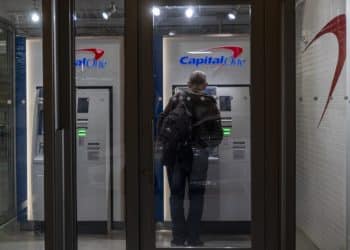4 Ways Banks Can Engage With Fintech Startups
 With the fintech startup community booming, banks need to be plugged into that community to stay ahead of digital disruption.
With the fintech startup community booming, banks need to be plugged into that community to stay ahead of digital disruption.
Every bank will need to work with startups in some way to grow their business in an environment that is so ripe for digital disruption. The catalyst for digital technology overturning the industry’s status quo isn’t likely to come from banks. For one, banks are too invested in the status quo, so they don’t have the motivation to overturn it. Additionally, ancient legacy systems and fossilized layers of bureaucracy stymie their innovation efforts.
At the same time, the number of fintech startups has ballooned to more than 12,000, driven by a wealth of venture capital and a huge market primed to be upended by agile players riding the wave of mobile, cloud, and big data. Global investment in fintech companies tripled last year, growing from $4 billion to $12.3 billion, according to Accenture. Flush with cash and unburdened by legacy systems and bureaucracy, these startups are better positioned to attract digitally native customers and their wallets.
Some fintech startups don’t want to work with banks, they want to compete with them. But many of those 12,000 startups are also looking to actively partner with banks (or be acquired by them). Banks have money, market reach, and existing customer relationships – three things that many startups would love to have more of. Startups have things that banks need as well: talent with intimate knowledge of emerging technologies, and flexibility to fail fast, change course, and scale at breakneck speed.
Building Relationships
Many banks have dipped into the startup world, trying to absorb some of these benefits. There are simple ways for banks to start engaging with the startups. Hackathons and other rewards-based competitions can get a bank’s brand some recognition in the startup community, while exposing the bank’s staff to new ideas and technologies.
Another new way for banks to simply and cheaply engage with startups is to provide free resources to them like co-working space. For example, Singapore-based DBS Bank is sponsoring a 5,000 square foot co-working space for fintech startups in Hong Kong as part of an accelerator program it is running in partnership with a local incubator. Besides office space, DBS will also offer startups mentoring from its executives and access to some of its technology.
It’s common in the tech world for large corporates to give startups access to some of their technology. After all, platform providers need developers to build new applications on their platforms, and offering those platforms up to startups is a great way to do that. No company in financial services has done this as well as PayPal, which offers up its payments technology and technical support to startups that need to take consumer payments. PayPal processes the first $1.5 million in payments without any fees for startups in this Startup Blueprint program. The most famous startup to participate in the program has been Uber, which still processes all of its transactions through PayPal.
While sponsoring hackathons and offering resources to startups can give banks important inroads into the startup community, these actions don’t necessarily lead to concrete business relationships. PayPal can easily lock in those business relationships because of the difficulty a startup would have in switching its payments processor. Banks have to find ways to similarly incentivize the startups it works with to maintain the relationship long-term. A good example of this would be the Accenture-sponsored Fintech Innovation Lab in New York City. Startups that join the program get mentoring from one of the 14 major financial institutions partnered with the lab, and the mentors work to help each startup develop a pilot with their bank. If that pilot is successful for both the bank and startup, there’s a strong incentive for them to continue their relationship.
Putting Money on the Table
The largest banks have gone far beyond hosting hackathons and giving startups a helping hand. These big banks have committed more financial resources by investing through venture capital arms. This type of collaboration gives startups much-needed funding and gives banks early exposure to startups’ emerging technologies.
Additionally, banks have the opportunity to use venture capital to acquire startups outright. One notable example of this would be BBVA Ventures’ acquisition of Simple last year, which gave BBVA a fully digital banking platform to compete with other branchless banks like Ally Bank. BBVA also plans to help Simple expand to other markets outside the US. Banks could also reap financial gain if they invest in a startup that grows into a successful business. JPMorgan, Citi, Morgan Stanley, and Goldman Sachs could all potentially cash in on their early investments in Square when it IPOs later this year.
However, banks will find increasing competition over venture capital funding now that everyone expects fintech to be one of the next big technology trends. In particular, tech giants like Amazon and Google that are growing their presence in financial services could look to do so through their own huge venture capital arms. If you were a startup, who would you rather associate your brand with, Google or a bank?
Banks can also start their own startup incubators or accelerators, offering up mentoring, legal, marketing, or technology support for a given time period. Such programs can also be accompanied with direct equity investments in participants. For instance, Wells Fargo invests between $50,000 and $500,000 in each participant in its accelerator program. Wells uses the program as an extended audition to consider purchasing the startups’ products. Barclays runs an accelerator program that it recently expanded to Tel Aviv and Cape Town; Barclays also just signed a number of contracts with program participants including a pair of Bitcoin startups.
On the down side, these kinds of programs are extremely costly to run. Banks should have extensive experience in dealing with startups through other kinds of collaboration before shelling out for such a program. Additionally, banks need to have very specific objectives when they start an accelerator to ensure they get their money’s worth. Barclays has already invested the resources to develop 43 different financial Blockchain applications in its internal labs, so it makes sense to strategically supplement that work through its accelerator program.
Many banks don’t have the resources to run long-term international startup accelerators like this on their own. But that’s no excuse for ignoring the fintech startup scen. Every bank needs to have some level of engagement with the startup community if it doesn’t want the digital future of financial services to pass it by.
Paul Schaus is CEO and president at CCG Catalyst, a management consulting firm offering strategic advice to banks. Follow CCG Catalyst on Twitter and LinkedIn.











